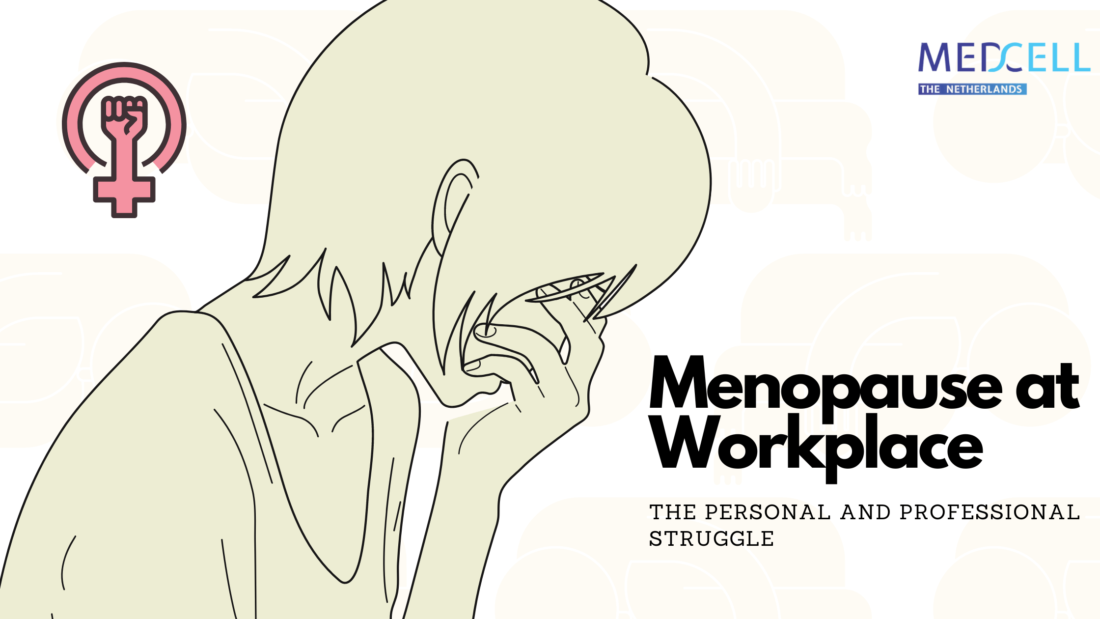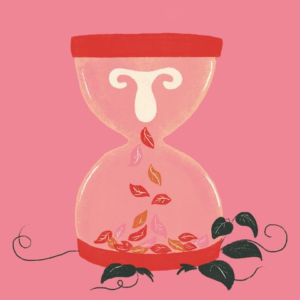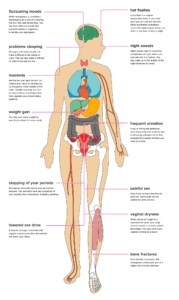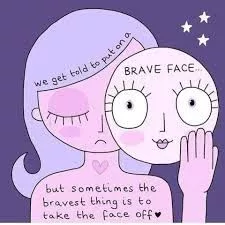Menopause at workplace
Introduction: What the numbers say…
According to the National Statistical Office’s Elderly in India 2021 report, there will be 101 million women over the age of 60 in India by 2031. Despite living longer than other women, Indian women don’t necessarily have healthier lives. (Source: World Health Statistics report, 2021)
What is Menopause?
According to the World Health Organisation (WHO), menopause is a time when the menstrual cycle has been uninterrupted for more than a year and estrogen and progesterone levels in women’s bodies have decreased. Both short-term and long-term consequences are brought on by the decline in estrogen and progesterone levels.
The short-term impacts include hot flashes, irritability, sadness, and mood swings, while the long-term repercussions include Alzheimer’s disease, lower-back aches, cardiovascular difficulties, joint pain, brittle bones, and osteoporosis. Both short-term and long-term effects damage the quality of life of the female population and lead to increased demand for health care. (Source: [Green and Cook 1980, Holte and Mikkelsen 1982, Matthews et al 1990])
Menopause and Quality of Life
Typically, menopause lasts 7 to 14 years. Women begin experiencing pre-menopause around the age of 43, and menopause occurs between the ages of 47 and 48. This means that a huge percentage of postmenopausal women take on leadership posts despite suffering from depression, anxiety, and other debilitating symptoms. Managing both their career and personal lives becomes quite challenging for them at this period. There is no universal set of symptoms that all women experience. (Source: Menopause at workplace: Break the silence, provide support, Economic Times, India Times March 2022)
According to one research by CIPD and Bupa, many menopausal women who continued working had to take an average of 32 weeks off over their careers to help manage these symptoms.
According to another research by Mint, only 60% of women had returned to their jobs, compared to 90% of men who did so before the outbreak.
Menopause at workplace
“Menopause is a health issue that can impair not just the productivity and performance of women, trans and non-binary colleagues between the ages of 45 and 55 years, but it also occurs at a critical career stage where many find themselves in leadership roles and many may find themselves opting out of the workforce because they find adapting to strict work requirements together with the side effects too tough,” explains Paromita Deb Areng, CHRO, Zaggle. This, together with the low representation of female, transgender, and non-binary coworkers in the C-Suites, creates a problem at work since it affects workplace equality and inclusion more broadly.
Menopause is not just a personal struggle, but also a professional one, as Emma points out. More than half of the population will most certainly experience menopause at workplace throughout their career, with many lowering their hours, declining promotions, or quitting completely when symptoms become incapacitating. These are people whose skills businesses have invested in for years but risk losing at the top of their abilities.
In order to ensure that women continue to thrive during this vital stage of their lives and careers, it is crucial to include menopause-specific policies in organisations’ inclusion initiatives, from mental health assistance to flexible working to specific medical treatment.
The personal struggle of Menopause
“The topic is widely regarded as taboo and occasionally amusing because of the widespread ignorance and chaos around it. When one happens to find themselves unable to recall simple conversations or even the names of work colleagues, it is common to laugh it off and come up with excuses of forgetfulness to avoid scrutiny. This can occasionally be due to brain fog, and one would rather just sweat in shame rather than ask for the AC to be turned up because the rest of your colleagues are not feeling as hot as you are “, says Areng.
“This transition period can last for years (7–10 years!) with some experiencing mild to severe symptoms such as hot flashes, depression and anxiety, brain fog, weight gain, temperamental moods, and low energy (to name a few). This leads to additional stress and burnout as there aren’t enough resources to support the transition, which is alarming because more and more women are becoming premenopausal between the ages of 35 and 40 due to stress and lifestyle disorders. Unfortunately, a lot of people endure their suffering in silence and avoid discussing their difficulties in public. They worry it will affect their jobs at work and their capacity to work, in addition to being embarrassed about the transition and managing the side effects on a daily basis ” said she.
Menopause medicine
Medcell Pharma introduces RHUBY 731 – ensures smooth journey during menopausal phase. RHUBY 731 is clinically proven in the management of perimenopause, post menopause and surgical menopause. Medcell Pharma’s RHUBY 731 is approved as a FSMP (Food for Special Medical Purpose) in India, and is available all over the country through TATA 1mg online pharmacy.

RHUBY 731 – Menopause medicine for menopause treatment. perimenopause treatment & post menopause treatment
The star ingredient in RHUBY 731 is Rhapnotic Rhubarb Extract (As ERr731®) – The most extensively studied phytoestrogen. While Hormone Replacement Therapy (HRT) is the most common treatment for menopause, 80% of women discontinue HRT within the first 3 months due to unpleasant side effects. Choose RHUBY 731 for better management of menopausal symptoms without the challenges of HRT. RHUBY 731 is a nutraceutical for women wellness, and helps in 68% reduction of menopausal symptoms such as hot flushes (65% reduction), sleep problems (58% reduction), irritability (60% reduction) and joint/muscular discomfort (61% reduction).
The lack of support from employers
In a study of 2,000 women experiencing menopause symptoms, 63% stated their employer lacked a policy. The women indicated that menopause had had the second-most damaging effect on their careers, only after having children. It was discovered that a quarter of the women polled (24%) are dissatisfied with their jobs due to a lack of assistance, with 63% stating that their workplace has not implemented any type of policy to make things easier for women going through menopause.
“Because of my condition, going to work without any help is like agony,” she explained. “My joints hurt so much that I can’t move.” I can’t hold two things in my head at once, and my anxiety is so intense that it keeps me up at night.
Eva will need to start working again soon in order to keep her income from being cut in half. Although she had always enjoyed her career, she admitted that the notion of going back was dreadful. “I also pay the mortgage on our house and can’t see how my family can live if my salary is reduced,” she explained. “But I’m frightened of going back. “My managers are empathetic, but they don’t provide any actual assistance.”
Over the past seven years, Gillian Archibald has quit three jobs in an effort to seek employers that will encourage her in managing her symptoms at work. In her words, “I don’t think employers have any idea how tragic and demoralizing it is for women who have worked their entire lives and want to continue working but feel a shell of their former selves and not receive any significant assistance to remain working.”
Changes A Woman Leader Can Bring About
As a woman leader today, Areng of Zaggle says, “I speak openly about my perimenopause at workplace (at 41!) because only when I speak up, will this taboo topic lose its influence and we can start making our workplaces more sensitive towards this health concern.
We must urge more female, transgender, and non-binary colleagues to open up to their manager in an effort, to begin, understanding coworkers and ask for their support during the transition. Conversations about what to expect and what can be done often aid in the formation of a support group around the person.”
“As organisations continue their efforts to destigmatize mental health, it is equally crucial to sensitive the workforce on the prevalent symptoms encountered by premenopausal, menopausal, and postmenopausal women and transgenders”, adds Raje of Scaler.
Conclusion
“First and foremost, the stigma surrounding menopause must be addressed, and healthy menopause at workplace dialogues should be promoted.” Menopause has been linked to a variety of mental health difficulties among menstrual employees. In order to address this, organisations must offer sufficient healthcare support in the form of therapy sessions and health consultations with subject-matter specialists, while also providing the employee with sufficient leave time as needed. It is critical for organisations to reassure employees that their health and wellness issues are a priority and that the organisation’s policies are in line with it.









I’m thoroughly enjoying your blog. I too am an aspiring blog blogger but I’m still new to the whole thing. Do you have any suggestions for newbie blog writers? I’d definitely appreciate it.
[…] and foremost, the stigma surrounding menopause must be addressed, healthy workplace dialogues should be promoted and the impact of this natural biorhythm is discussed openly in family […]
gnáthú a dhéanamh ar shaoire le pá le haghaidh bladhmanna sos míostraithe
Its disturbing how menopause isn’t talked about openly in the workplace/society.
Well researched article
These guys have a really good nutraceutical for treating perimenopause, menopause and post menopause fluctuations. I seriously recommend it! https://medcellpharma.com/product/rhuby-731/
Thanks for this insightful post!!
The transition to menopause is so hard because there are not enough people taking openly about it. Women feel ashamed to admit their forgetfullness and sudden hot flashes, and that needs to change positively.
All wives need to show this to their husbands. Then ask for their opinion.
Surgical menopause is the worst kind of menopause, in my opinion…
Another misconception is that menopause is only about physical changes. While the physical symptoms are prominent, menopause can also bring about emotional and psychological changes. Women may experience mood swings, anxiety, irritability, and depression during menopause. Understanding and addressing the emotional aspects of menopause is essential for overall well-being.
My mother told me that Hormone replacement therapy (HRT) is the only treatment option for menopause symptoms. When I asked my gynaecologist with teary eyes, she said that HRT is not the only option. In reality, there are alternative approaches, such as lifestyle changes, natural remedies, and non-hormonal medications, that can help manage menopause symptoms. Women should consult with their doctors to explore the best options for their specific needs and preferences.
Due to ovarian cancer, I had to undergo surgical menopause. I felt like it was the end of sexuality. I thought that this is the end of my sexual desire or enjoyment – later in therapy, my doctors explained that hormonal changes during menopause can affect libido and vaginal dryness, but that doesn’t mean it is the end of a fulfilling sex life. We had partner sessions where open communication with partners, exploring different forms of intimacy, and seeking medical advice if necessary helped us maintain a satisfying and pleasurable sexual experience during and after menopause.
My mother used to worry that menopause signifies the end of her femininity or attractiveness – as this misconception can stem from societal messages that equate fertility and youth with desirability. It took a lot of patience to let her know its okay to feel this way, but what she feels is simply not true.
Even women have misconceptions about menopause – we think menopause is the same for everyone.
Menopause has historically been a taboo topic, surrounded by silence and stigma. This silence can perpetuate misconceptions and prevent open discussions about the challenges women face during this transition. Encouraging open communication and fostering a supportive work environment where women feel comfortable discussing menopause can help break down these barriers.
Every time I get interviewed for jobs, and I state my age, the man already has formed an opinion about my capabilities – Apparently according to them, menopause is viewed as a sign of decline or decreased capabilities.
Its annoying when men have heard about menopause, but think its just hot flashes.
People think that menopause only affects older women. They forget that some women may experience it earlier due to factors such as surgery, certain medical conditions, or treatments like chemotherapy. We aren’t acting “crazy”.
Many men have this misconception that menopause is strictly a personal matter and has no impact on work. Absolute bs
Imagine being in a male-dominated workplace where the minority is composed of peri menopausal women and you need to stop and think if you need to email this article to the HR for a kinder atmosphere for us ladies
[url=https://cleocin.science/]clindamycin 500 mg price[/url]
[url=https://amoxicillinhct.online/]amoxicillin prescription discount[/url]
[url=https://trazodone.beauty/]trazodone drug[/url]
[url=http://singulair.gives/]singulair drug[/url]
piroxicam capsules
cialis 5 mg discount coupon
best price malegra fxt canada
buy cheap sildalis
clomid 5 mg tablets
elimite cream over the counter
buy synthroid online usa
sildenafil generic canada
roche accutane without prescription
paroxetine discount
clomid generic in canada
antabuse cost australia
how much is generic valtrex
how much is motrin 400 mg
lisinopril 10 mg online
xenical tablets uk
order azithromycin from mexico
erectafil 5mg
motrin 200 mg
cost of amitriptyline canada
voltaren 75 mg pill
50 mg elavil
phenergan tablets 25mg uk
gabapentin 30 mg
allopurinol 30 mg
price of modafinil 200 mg in india
medrol 24mg
aurogra 100 mg
zanaflex 4mg cost
glucophage cost canada
tenormin atenolol
can i buy metformin over the counter in uk
sildalis without prescription
augmentin 400
levitra 5 mg
phenergan tablets
prazosin 4mg
phenergan 10mg
generic cost of cymbalta
elimite 5 cream over the counter
where to buy prozac
acyclovir cream over the counter
triamterene-hctz 37.5-25 mg cp
buy tamoxifen india
cost cialis daily use
how much is tamoxifen cost
clindamycin 150mg pills
medrol pack
buy zanaflex australia
buy generic avodart online no rx
cialis 20g
buy feldene online
tamoxifen cheap
feldene gel usa
generic elimite
retin a 005
ivermectin canada
tretinoin 0.04 gel
where can you get diflucan over the counter
where to buy albendazole
phenergan 30 25 mg
dapoxetine tablet price
augmentin 1 g
generic albendazole online
propecia medication
hydroxychloroquine sulfate
online pharmacy denmark
levaquin 750 mg
lipitor generic price
phenergan online australia
prednisone us
affordable pharmacy
hydroxychloroquine brand
purchase ventolin inhaler
synthroid 112 mcg in india
flomax generic alternative
prednisolone tablets buy online
albenza canada over the counter
albuterol uk
buy nolvadex paypal
tamoxifen 100 mg
buy azithromycin nz
prednisolone for sale in uk
can you buy furosemide otc
desyrel
accutane cream india
accutane cheapest price
pharmaceutical online ordering
prednisolone
buy diflucan
zoloft tablets 250mg
Lasix 10 didn’t work as advertised.
where can you buy antabuse
plaquenil 200mg tablets
amoxicillin 875 pill price
furosemide 12.5 mg tablets
finasteride generic
prednisolone 5mg price
tamoxifen medication
cost of valtrex
zovirax tablets prescription
dexamethasone 4 tablet
malegra 180 on line
buy sildenafil online canada
zoloft 125
500 mg valtrex daily
over the counter diflucan pill
1000 mg zoloft
buy citalopram tablets online
budesonide uk
generic zoloft
buy citalopram online
zestoretic tabs
where to buy viagra safely
buy ventolin nz
provigil 200 mg price
buy buspar online cheap
how to get hydrochlorothiazide
clonidine 0.1 mg tab brand name
cheapest tadalafil prices
prednisone 40 mg
amoxicillin 500 mg price
buying accutane online
lisinopril 50 mg price
retino 0.025 gel
valtrex from india
where can i buy retin a cream in uk
modafinil tablets india
baclofen cost australia
generic levitra for sale
buy accutane uk
lisinopril 20 mg prescription
cost of brand name glucophage
vardenafil professional
glucophage price in australia
zithromax 1g
chloroquine sulphate tablets
baclofen 10 price
how much is generic cymbalta
avodart coupon
inderal 40 mg tab
synthroid 50 pill
cost of glucophage in india
can you buy lisinopril
valtrex pills for sale
valtrex 1000 mg price canada
baclofen cost 10mg
lyrica 300 mg capsule
accutane 40 mg price
tadalafil tablets 20 mg
finasteride 1mg price
lisinopril
ventolin tablets buy
prednisone tablet 100 mg
permethrin topical cream over counter
thyroid synthroid
synthroid 137 mcg tablet
azithromycin 600 mg tablet rx
lyrica medicine generic
diflucan generic
otc prednisone cream
dexamethasone coupon
where to buy diflucan without prescription
buy prednisone 10mg
retin a 0.1 buy online
vermox usa buy
synthroid prescription
baclofen buy uk
purchase metformin 500 mg
baclofen 20 mg coupon
how much is prednisone in mexico
price of propecia in canada
buy valtrex tablets
propecia 2.5 mg
synthroid 75 pill
can you buy vermox over the counter in usa
valtrex tablets
accutane online
suhagra 50 online purchase in india
cheap generic valtrex without prescription
albuterol inhalers for sale
metformin for sale in usa
propecia drugstore
pharmacy no prescription required
amoxicillin 21 tabs 500mg
fluoxetine 20mg capsules
baclofen 10mg tablets price
colchicine 600 mcg
where to buy generic lexapro
100 mg doxycycline
buy silagra online
where to buy diflucan otc
buy amoxicillin 500 no rx
trazodone hydrochloride 100mg
canadian pharmacy levitra 20 mg
buy amoxil without prescription
best price doxycycline uk
where to buy stromectol
gabapentin pills 800mg
robaxin 1500 mg
diflucan pill over the counter
xenical otc
doxycycline no prescription
atarax 20 mg
baclofen 30 mg cream
retin a cost in mexico
how much is trazodone 100 mg
generic zoloft 50 mg
cost of zoloft 20 mg
albuterol coupon
buy synthroid 200 mcg
875 amoxicillin 125
cheap lisinopril no prescription
levitra buy canada
clomid tablets
order accutane from india
generic lexapro price comparison